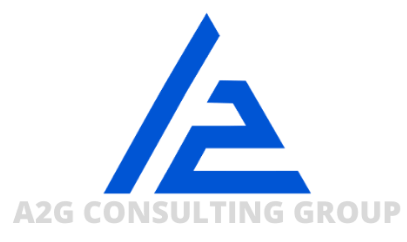LAWYER SEO
Search engine optimization (SEO) is the process of enhancing the visibility of your law firm's website in search engine results pages (SERPs), which are the pages that appear when you type anything into Google, Bing, or another search engine.
To put it another way, if your law practice appears towards the top of search engine results, particularly on the first page, you'll get more traffic to your website. Ads that appear in the search results are not included in SEO. Visitors will contact you to learn more about your services after clicking on your link in the organic results (and provided your website gives them the essential information they need and want).
When it comes to SEO for law firms, the biggest problem is figuring out how to push your company to the top organic search results. Although there are a lot of companies that offer law firm SEO, there are no infallible methods or promises that you'll be able to rank first in organic search results.
You can do several things to boost your chances of ranking on the first page of search results. It's simple to break through the noise in the market and attract the attention of prospects if you grasp the basic principles search engines use when selecting which websites are the most valuable to internet consumers.
There are three sorts of SEO ranking variables for law firms:

Content
The words and other forms of information on the pages of your legal firm's website, such as photographs. Having high-quality content on your website will improve user experience and help you boost your search engine rankings, especially if your material is likely to satisfy user intent.

Off-Page Citations & Backlinks
When compared to other legal offices, the internet impression, credibility, and authority that your firm has, the quantity of external website domains and pages referring visitors to your website has an impact on this.

SEO In A Technical Sense
When Google ranks your website, the user experience is one of the most important factors to consider. That implies that long-term goals such as page speed, title tags, and site structure should aspire.
How To Do SEO for
Law Firms
If you're a legal practice wanting to expand, organic search traffic is a valuable marketing avenue that's sometimes underestimated. However, research suggests that greater attention should be made to enhancing law business SEO. According to the 2019 Legal Trends Report, 17 percent of legal consumers used the internet to find a lawyer, which is tied for the second-highest percentage of any technique.

Option 1: Perform SEO On Your Own
This article should only be the beginning of your adventure into the world of law firm SEO. Begin by reading the beginner's guide to SEO and Google's Webmaster Guidelines and comprehending them.

Option 2: Investigate Keywords
Here's a fast technique to come up with website content ideas for your legal firm:
- Make a list of all of your legal firm's services, specialties, and locations.
- Make a keyword list. First, utilize synonyms to come up with three or four different ways to describe the same thing for each practice area/service and city combination. Find out more about keyword research.
- Make material for your website and post it.
The steps are as follows:
- Create a new list of the top 20 criteria that a client would have when considering employing you for each practice area and city combination that you found in step #2 (keyword research). For ideas, look over your client intake notes.
- Write an easy-to-understand overview of your legal service for each practice area and city combination, including information about all of your clients' priorities.
- Look for ways to incorporate some of your keywords, but don't overdo it. Remember to utilize keywords in the title, meta description, and headers.
- Each summary should be placed on its page on your website.
- Use website calls-to-action to direct clients to your booking page.
- Finally, don't overlook the other fundamentals of a law company website.
Before adopting SEO strategies, make sure your law firm's website is technically solid.
It might be difficult to ensure that your website meets all of the technical standards, which is why we recommend enlisting the services of an SEO professional for your legal practice. However, if you prefer to go it alone, we recommend consulting Google's Webmaster Guidelines

Option 3: Develop Your Online Presence And Links
Take control of all of your internet accounts, particularly Google My Business. (Add a Clio interface so that potential clients can book consultations right from your listing.) Invest in a platform like Brightlocal to automate your legal firm's submissions to multiple local directories.
Follow these guidelines to encourage your customers to submit reviews.
Blogging and upgrading your website pages regularly will keep your material current.
Choose at least five backlink-building initiatives from this list and add five new links each month.

Option 4: Hire An SEO Professional For Legal Practice
SEO is a time-consuming yet lucrative endeavor. However, the fact is that many attorneys simply do not have the time or desire to master a new profession. If that is you, there are a few things to consider when looking for a professional to help you improve your law firm's SEO.

Option 5: Budget
What is the cost of your legal services? A skilled SEO specialist would typically charge a comparable hourly cost, if not somewhat less. And, as previously said, SEO is a time-consuming effort. If you decide to engage in marketing activities, a baseline estimate of $1000-$2000 per month is a good place to start. Be sure to factor it into your law firm's budget.
The finest SEO gurus don't have time to work on their websites, so you might not be able to locate them with a simple Google search! Request a reference from other attorneys in your network for someone who specializes in SEO for law companies.
When selecting an SEO expert for your law company, there are a few things to keep in mind.
When speaking with potential SEO specialists, they should at the very least acknowledge the fundamentals mentioned in this book. Inquire about the importance of content, backlinks, and technical SEO, as well as examples of their previous work. Finally, verify their references, especially those from rival legal offices. They must be familiar with the legal business and the specific pain points that potential customers have while seeking your firm's services.
SEARCH ENGINE
OPTIMIZATION
SEO is a marathon, not a sprint, for attorneys. Expect your law firm's search engine rankings to rise gradually. Patience is required. Continue to concentrate on creating fantastic new material relevant to potential clients, establishing backlinks, adhering to Google's Webmaster Guidelines, and receiving favorable client feedback.

Website Optimization
In A Well-Ordered Way:
Your site is ready to be indexed if it has a header, suitable and relevant content, an image, URL, title tags, meta descriptions, and attributions. This is a method of organizing your material to index search engine bots easily. When indexing is done correctly, you can be confident that your SEO is getting to where it needs to go. Now all your SEO services have to do is consider every SEO aspect and frequently maintain the backend infrastructure so that your site is always up to date.

Enhancement Of The
Site's Visibility:
SEO, or search engine optimization, ensures that your website's visibility is increased. Aside from appearing at the top of search engine results, improved exposure allows consumers to examine your site immediately, and more clicks boost the likelihood of potential clients becoming retainers

Use Of Keywords Properly:
Complete Search Engine Optimization mixes a correct website structure, site architecture, content production, navigation, and keywords. However, one element distinguishes a website: the usage of keywords. The first step is to choose relevant keywords. There are many tools available for keyword selection. Still, you must remember the critical elements that help in the right selection of keywords that have the potential to improve your site's results.
When you choose top keywords that represent the industry you're in, you'll have a far greater chance of appearing first in search engine results. On the other hand, keyword stuffing should be avoided only to increase keyword density. If you fill your site with keywords, Google and other search engines may punish it, thus banning all visitors to your site.








